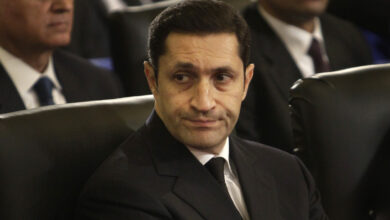President Hosni Mubarak’s decision to open the Rafah border crossing between Egypt and the Gaza Strip for an indefinite period was described by American and British press accounts yesterday as an attempt to ease widespread fury over Israel’s siege of the Gaza Strip in the wake of Israel’s raid of the Gaza aid flotilla Hurriyya.
The Christian Science Monitor reported that Mubarak’s decision was prompted by heightened public anger following the raid throughout the world and in Egypt in particular, where a peace accord with Israel was signed three decades ago, as well as resentment over the Egyptian government’s role in the suffering of Gazans.
The newspaper attributed Egypt’s position towards Gaza to Hamas’ control of the Gaza Strip, and to the group’s strong ties with the Muslim Brotherhood, Egypt’s largest opposition movement. According to the paper, the Mubarak regime feared that the Muslim Brotherhood could take power due to its popularity among Egyptians, and thus the economic isolation of the Gaza Strip is beneficial to the regime.
The New York Times reported that the portrayal of Turkey as the guardian of Palestinian rights confronted by Israeli soldiers targeting unarmed civilians has discredited Arab leaders allied with the West, putting Egypt, Jordan and Saudi Arabia on the defensive. Turkey’s allies, Iran, Syria and Qatar, on the other hand, have gained credibility as a result of their support for Hamas.
New York Times’ Michael Slackman described Egypt’s extreme embarrassment over the Hurriyya incident, specifically since it has kept its border with the Gaza Strip closed since Israel’s 2009 assault on Gaza. Egypt has argued that opening the border would undermine Egyptian security by allowing Hamas to strengthen its control over the border areas and spread its ideology to Egypt.
Jack Shenker of the Guardian said that the issue of the Rafah crossing, a lifeline for Gaza, poses a serious dilemma for Egypt, caught between its desire for Arab solidarity on one hand, and maintaining its interests with Israel on the other. Shenker added that Mubarak’s decision to open the border was an attempt to ease criticism and anger directed at him as a result of his dealings with Israel. At the same time, Shenker said, Mubarak is looking to preserve good relations with the Israeli state, upon which some US$2 billion in American aid is contingent each year. Mubarak relies upon this aid to preserve his unpopular regime.
The Associated Press explained that the blockade on Gaza was imposed by Egypt and Israel following Hamas’ 2007 takeover of Gaza. While Egypt considers Hamas a potential threat, Israel views Hamas as a terrorist organization that has launched thousands of rockets into on Israeli towns and villages and has targeted its citizens with attacks.
The news agency added that Egypt’s closure of the border has possibly prevented an array of items from entering the strip, including weapons, explosives, cement, iron and fertilizers. Egypt also bans entry or exit through the border, leading Gazans to rely on a system of tunnels to smuggle basic provisions across the border.
Translated from the Arabic Edition.
EgyptFeatures/Interviews




